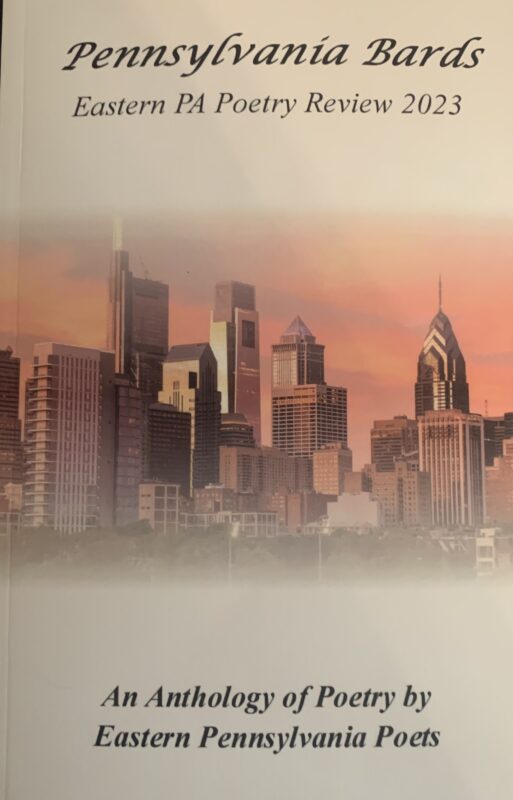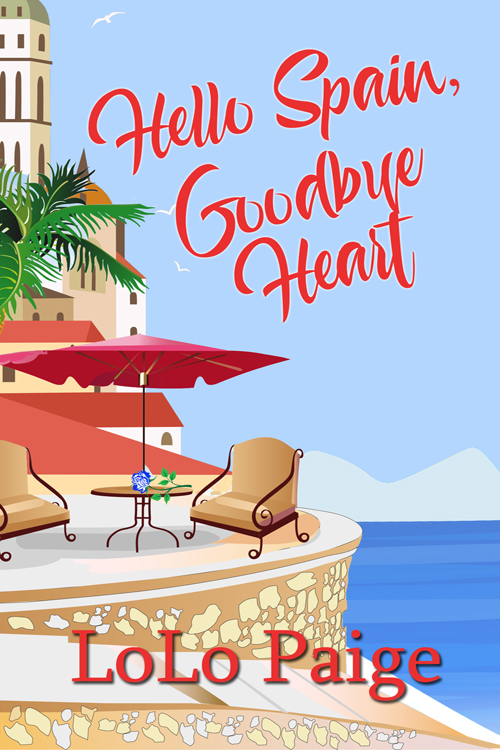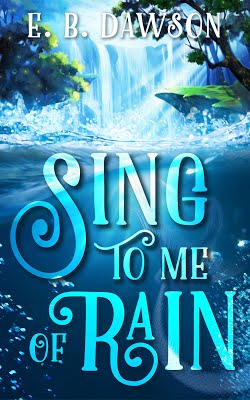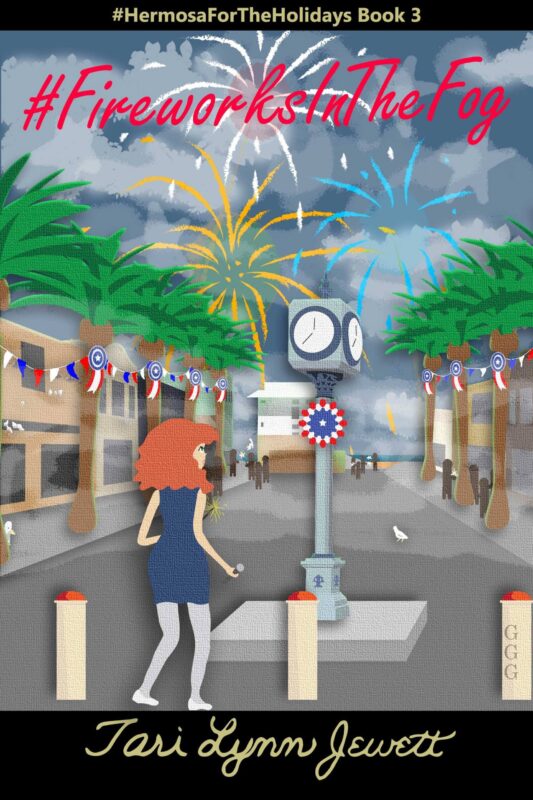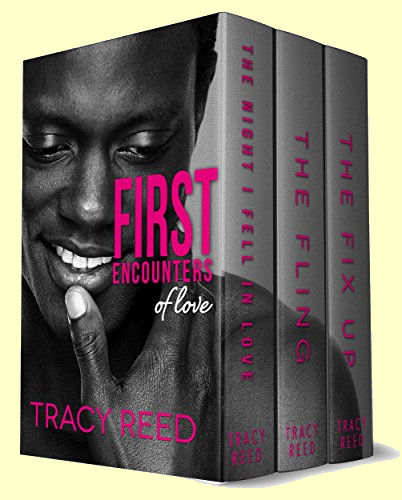News You Need by Kitty Bucholtz
February 9, 2011 by A Slice of Orange in category Archives tagged as It's Worth It
As you’re working through your new goals for this year, you may find some helpful information in the following articles. It’s been one of those months where every other email I open has some great tidbit in it and I wanted to share it all with you. Some of it is news, some are warnings, some have opportunities, and some have ideas for your craft. Hopefully, some of it will help you to have a more successful year! 🙂
I saw a documentary on TV that a friend of mine produced and it was so fascinating that I went online to find more information. Here is a post from 2009 at The Book Deal about how your brain works and whether you can help it become more creative to improve your writing.
I’m excited to find out about John Maxwell’s new 1-minute word-of-the-day videos. John is an excellent motivational speaker and writer. I’ve read several of his books and they have helped me in building the kind of writing business I can be happy with. I get the daily video in my Inbox and each one helps me to focus on a characteristic that could make me a better leader, including leading myself.
There are some writing contests that are gimmicks for bad business. Agent Janet Reid tells you about one to beware of (though I think with all the bad press this last week, the contest’s web site is already down) and she gives you the warning signs for future reference. The Writer Beware blog also has a good post on agent solicitations and how to spot the red flags. And here’s an article from WritersWeekly about a company that buys 5-star book reviews and recruits writers to write them.
Paperback Writer (Lynn Viehl) posted a list on her blog of ten writing opportunities she’s found recently. Cindi Myers also posts writing opportunities every week.
The Romance Writers of America’s Fantasy, Futuristic and Paranormal chapter’s blog is bursting with great articles on the craft – world building and more world building, creating a story bible, secrets of successful authors, point of view, what to do with your blog, and so much more. This is a great blog for picking up lots of useful tips!
At Inkhaven, there’s a re-post of a blog called Lessons from the Slush Pile. The author is an Assistant Editor at a magazine.
I’ve seen a few emails about Jerry Seinfeld’s Don’t Break the Chain calendar. CJ Lyons talks about it here. It’s a fun and simple way to keep working on your writing career every day. Download your own free calendar from The Writer’s Store here.
I’m linking to this 2006 interview with YA and children’s book writer Cornelia Funke because I love her work! As with so many great writers, there are lots of little encouragements and tips to be gleaned by reading the interview.
Finally, living in Australia, I must comment on the Queensland floods. A friend of a friend posted this article about the amazing generosity of strangers and included pictures of her mother’s house and the wonderful people who helped them clean up. The generosity of writers and readers around the world is helping to replace books in libraries, and give books away to people who have lost everything and need a little storytelling escape. The Romance Writers of Australia have organized ways for you to help here.
Kitty Bucholtz is a writer and speaker, and a member of Romance Writers of America and Romance Writers of Australia. She co-founded Routines for Writers (http://www.routinesforwriters.com/) a web site dedicated to helping writers write more. In 2011, Kitty will receive her Master of Arts degree in Creative Writing from University of Technology, Sydney.
The Romance of Cookbooks
February 8, 2011 by A Slice of Orange in category ArchivesOkay, I confess. The five pounds I gained over Christmas and New Year are still there. Still stopping me from wearing my jeans (for some reason, my family objects when I leave my jeans even discreetly unzippered). Still making me remove my wedding ring in the hope of tipping the balance of my bathroom scales one measly ounce in my favor.
It shouldn’t be this way. Theoretically, the moment the addition of cranberry sauce to every sandwich ceases, the moment the last remnants of the Christmas pudding have been washed down with whipped cream, those five pounds should melt away. Slowly, maybe, but melt nonetheless.
Ain’t happenin’.
And I know why. Because I was given a total of five cookbooks for Christmas and my adjacent birthday – the works of Yotam Ottolenghi, Gordon Ramsay, Peter Gordon, Darina Allen and Bill Granger now grace my kitchen shelves. (No one gave me the new Nigella Lawson book, but that’s a whole ’nother grudge…are you reading this, family dearest?).
I love reading cookbooks – I can do it for hours at a time. But reading’s not enough…then I have to cook the stuff. Then I have to eat it. Yep, instead of sipping on fat-busting green tea while I eat bland chicken salads, I’m whipping up lamb curry, ricotta hotcakes with maple syrup, crème brulée. And eating them.
I’m doomed.
Oh, well, might as go out in style…maybe tonight I’ll try the pork fillet stroganoff.
When I’ve finished eating and am lying on the sofa too stuffed to move, I’ll be ready for more cookbooks to read – I’d love to know your favorites!
Waiting, Planning, and Obsessing
February 6, 2011 by Linda O. Johnston in category Pets, Romance & Lots of Suspense by Linda O. Johnston tagged as Berkley Prime Crime, Harlequin Nocturne, Linda O. Johnston, Pet Rescue Mystery, Pet-Sitter Mysteriesby Linda O. Johnston
It’s February. I’m obsessed.
With what? Planning for the March release of BEAGLEMANIA, the first in my new Pet Rescue Mystery series, a spinoff from my Kendra Ballantyne, Pet-Sitter Mysteries. It’s all about Lauren Vancouver, who was introduced in HOWL DEADLY and also appeared in FELINE FATALE, both Kendra mysteries. She runs a no-kill animal shelter in the San Fernando Valley. Saving animals is her obsession. Poor thing will soon start tripping over dead bodies, too.
I believe that all of us write, in some ways, about our obsessions. Romance is certainly something we all obsess over at times. Mysteries and suspense? Less so, maybe, but those of us who write cozy mysteries often feature protagonists who engage in hobbies or other ventures that we love–while they’re solving murders, too.
I love it each time one of my books is released. This one, though, is in some ways more exciting. Why? Maybe it’s because, like Lauren, I’ve become a bit obsessed with pet rescue issues. I volunteer as a dog adoption counselor at Pet Orphans of Southern California. And I just became the LA Pet Rescue Examiner. Be sure to come and check out my Examiner.com articles!
Some of my excitement is because this will be the launch of a brand new series that addresses difficult issues in a way that, I hope, is both amusing and educational. For example, BEAGLEMANIA starts at a puppy mill rescue. The stories are cozy mysteries, so of course there are murders that get wrapped up at the end. In the Pet Rescue Mysteries, “no-kill†refers to pets, not people!
So far, no shapeshifters have appeared in my Pet Rescue Mystery manuscripts. I’m saving them for my upcoming Harlequin Nocturnes, which I’m also looking forward to. But you can see that all my obsessions seem to involve animals.
What are your obsessions, and do you write about them?
Be sure to watch for the new Lauren Vancouver, Pet Rescuer series! The first book BEAGLE MANIA will be out in March 2011. It’s a spin-off from the Kendra series, and Lauren was introduced in HOWL DEADLY.
Linda O. Johnston
http://www.lindaojohnston.com/
http://www.killerhobbies.blogspot.com/
Contest Deadlines
February 5, 2011 by Marianne H. Donley in category Archives tagged as contests, deadlinesFebruary Contest Deadlines
Updated and all sites tested…Compiled by Donna Caubarreaux….May be forwarded with credits.
..
EA = Electronic Format Available
EA/Non US = Electronic for Foreign Entries
EO = Electronic Only
MO = Members Only
U = Unpublished
P = Published
P/3 = Not published in three years
Pnr = Published, but not by RWA standards
PC = Not published in category selected
..
Stroke of Midnight Contest (U – PC – EO)
Passionate Ink
Received by February 7, 2011 (Extended)
First thirty-five pages. (at least 10K words)
http://www.passionateink.org/contests/#unpublished
..
The Shelia (EO – U – P/5)
Valley Forge Romance Writers
Deadline: February 11, 2011
Total of 35 pages, includes synopsis (not to exceed five pages)
http://www.vfrw.com/
..
The Sandy (U – EO)
Crested Butte Writers
Deadline: Midnight – February 13, 2011
First twenty pages and up to two page synopsis.
http://thesandy.org/sandy.php
..
Between the Sheets
Greater Detroit RWA
Deadline: February 14, 2011
Entries shall include a ten-page love scene (sweet to erotic) and a one-page
unjudged set-up.
http://www.gdrwa.org/contests…html
..
2011 Manuscript Contest
Writers’ League of Texas
Deadline: February 15, 2011 (Postmarked or Delivered by 6:00 PM)
One page synopsis (250 words) and first ten pages (2500 words).
http://www..writersleague.org/contests/manuscript.html
..
Fire and Ice (U – P/5)
Chicago-North RWA
Received by February 16, 2011
First twenty-five pages.
http://www.chicagonorthrwa.org/contest.shtml
..
Jeannie Gray Golden Frendship Award (U – Golden Heart Entrants)
GH99er Loop
Received by Midnight EST on February 18, 2011
250-300 word essay. Topic is on website.
http://jeannieaward.wordpress.com/
..
PNWA Literary Contest (U – EO for romance entries)
Pacific Northwest Writers Association
Received by February 18, 2011
Twenty-eight page limit which includes synopsis.
http://www.pnwa.org/displaycommon.cfm?an=6
….
Check out Contests and Contest Winners on: http://contestdivas.blogspot.com/
Check out the Award Winning Romance Books on:
http://awardwinningromances.blogspot.com/
….
Contest Alert-All the news on upcoming contests, plus Finalist and Winner
listings, questions, etc. Sign up now!
ContestAlert-subscribe@yahoogroups.com
….
Announcement only list:
ContestDeadlines-subscribe@yahoogroups.com
….
For Published Authors
ContestAlertPublished-subscribe@yahoogroups.com
….
If you’re a Contest Judge, join
ContestsJudges-subscribe@yahoogroups.com
….
Donna Caubarreaux is a member of Coeur de Louisiane, Scriptscene Chapter, NOLA Stars, Heart of Louisiana, and Kiss of Death. She received a RWA Service Award in 1997
CHEAP DATE: E-Book Pricing
January 31, 2011 by Rebecca Forster in category The Write Life by Rebecca Forster tagged as Authors, cheap ebooks, Free eBooks, pricing, readers, Rebecca Forsterby Rebecca Forster
When I was asked out on my first dinner date, my mother gave me some sage advice: “Order Chicken Kiev.â€
To this day, I don’t know if my mother was being considerate of my date’s financial status (Chicken Kiev was the cheapest thing on any menu) or was worried that I would be considered high maintenance and never be asked out again. Either way, I ate so much Chicken Kiev back then I thought I might be Ukranian.
Which brings me to the topic of the day: frugality. I don’t eat Chicken Kiev any longer (I’m not even sure I could look at it) but I do clean my own house, make most of my own clothes and serve leftovers for dinner. Yet, when it came to books, frugality was never a consideration. I know what it takes to write a novel. It is damn hard work. As an author, I hope that readers realize that they are paying for my effort in the same way I benefit from the expertise of anyone whose service I purchase. So, when I found a site called The Frugal E-Reader I had a few questions about books and price.
Enter Elizabeth Trudgeon Brown, Founder of the Frugal E-Reader: Kindle Finds for Under Nine (dollars), a review site for Indie and traditionally published authors alike whose books are available digitally. I wanted to ask her what role frugality plays in this new age of publishing.
Why did you decide to blog about inexpensive (some would say cheap) books instead of books in general?
While I was eagerly waiting for my Kindle to arrive this summer, I spent a lot of time at the Kindle Store and Discussion Forums searching for books to read. I caught a few discussions about $9.99 being the price cap that eBooks are generally accepted at, or that some readers were frustrated about prices being over $9.99 since the Agency Model took affect. I started to search for books that were under that threshold, and was pleased to find that so many were available! I decided to create a place that readers could come to so that they wouldn’t have to spend a lot of time and effort researching for themselves.
Your reviews are exceptionally detailed – nothing frugal there. Do you find your frugal followers lean toward one genre or another?
Mystery, thriller, or suspense titles are generally popular among the readers of The Frugal eReader. Classics are also widely accepted, so whenever I come across a classic novel that is under $9.00, I’m sure to include it. However, I believe each genre has its own following and as long as the specific premise is intriguing, it actually doesn’t matter what genre a title falls under to do well.
Are you setting a new decision matrix by leading with price?
When I first started to search for books to read on my Kindle, I was thrilled to find that along with some traditionally published books, there is a whole community of self-published authors that offer their books at lower prices. Without my Kindle and the many hours I spent searching for books, I may have never known of these authors or books. I’m not necessarily trying to set a new decision matrix; my goal is to provide one place where readers can discover books and authors at great values.
Do you think this ‘frugal’ approach creates a new mindset among readers?
Will they continue to expect the same quality and length of work for ever lower prices?
I don’t believe that quality should always be directly related to cost. Though something may be “frugal,†it shouldn’t mean that it can’t be of great value, and vice-versa. Whether a book is $0.99 or $9.99, readers won’t enjoy coming across typos, grammatical errors, or formatting issues.
One of the biggest complaints of digital books (especially Indies) is that there is no editorial oversight. Do you think ‘frugal E readers’ are more forgiving of editorial mistakes because of the lower prices?
I’m sure readers can be more forgiving of certain editorial mistakes with self-published authors – but to an extent. Though self-published authors may not have the immediate means to hire professional editors, proof readers, or artists, they should still put as much time and effort into proofing and editing their work as they have possible. The big picture is important here; with the expansion of the eBook market, readership and revenue are likely to increase. The possible additional funds should be used for additional editing, cover art, or anything else to improve upon the published work. No matter what the market is, investing revenue to improve upon or expand awareness of a product is essential to increased success.
I have seen discussion boards where readers resent paying for digital books. They believe since they are uploaded so easily they should be the lowest price – free, in the ideal world. What would you say to them?
In most cases, the eBook version is the lowest price. Although the price may still seem high for a digital copy (say $9.99), you could pay up to $24.99 for the same title if you were to purchase the paperback or hardback version. The higher price is understandable because in printed books, there are additional costs. However, there are rare occurrences where the Kindle price is more expensive than the paperback… this could potentially be due to the high demand of that particular eBook, or the fact that the digital version provides instant gratification.
I can understand how people may feel that the digital versions should be free, especially if they have already purchased the same title as a paperback or hardback. We may see this one day, as we do now with our music or certain DVDs and Blu-Rays. However, readers should also keep in mind that what we are essentially paying for is the story; the time and effort the author took to create it, and the intellectual entertainment that the story provides – no matter what format it’s in.
What is your advice to traditionally published and Indie authors regarding price as they enter this market?
I hope that the authors see the value in maintaining reasonable prices for their work as the market for eBooks continues to increase. They shouldn’t fear pricing their books low – especially if they are newcomers to the publishing world. Let me reiterate that price does not always correlate directly with quality. A lower priced book should not mean that it’s “cheap†in the sense that it is poorly written, or poorly formatted. When an unknown author enters the market, they should consider pricing their work as a means to develop their brand. Also keep in mind that a reader may be more inclined to purchase the work of a new author at a lower price – less risk. Once the author can establish themselves and the demand for their work increases, then prices can be adjusted accordingly.
Check out The Frugal eReader at:
Blog: http://www.thefrugalereader.com/
facebook: http://www.facebook.com/pages/The-Frugal-eReader/101086513289732
Twitter: http://twitter.com/FrugaleReader
Affiliate Links
A Slice of Orange is an affiliate with some of the booksellers listed on this website, including Barnes & Nobel, Books A Million, iBooks, Kobo, and Smashwords. This means A Slice of Orange may earn a small advertising fee from sales made through the links used on this website. There are reminders of these affiliate links on the pages for individual books.
Search A Slice of Orange
Find a Column
Archives
Featured Books
HELLO SPAIN, GOODBYE HEART
Dayna hopes for a second chance at love . . . but . . .he wears a wedding band.
More info →SING TO ME OF RAIN
An innocent naiad. A wounded boy. An adventure that will change their lives forever.
More info →#FIREWORKS IN THE FOG
So, you’d like to become a social media star…
More info →FIRST ENCOUNTERS OF LOVE
The FIRST ENCOUNTERS OF LOVE box set includes three stories of romantic firsts.
More info →Newsletter
Contributing Authors
Search A Slice of Orange
Find a Column
Archives
Authors in the Bookstore
- A. E. Decker
- A. J. Scudiere
- A.J. Sidransky
- A.M. Roark
- Abby Collette
- Alanna Lucus
- Albert Marrin
- Alice Duncan
- Alina K. Field
- Alison Green Myers
- Andi Lawrencovna
- Andrew C Raiford
- Angela Pryce
- Aviva Vaughn
- Barbara Ankrum
- Bethlehem Writers Group, LLC
- Carol L. Wright
- Celeste Barclay
- Christina Alexandra
- Christopher D. Ochs
- Claire Davon
- Claire Naden
- Courtnee Turner Hoyle
- Courtney Annicchiarico
- D. Lieber
- Daniel V. Meier Jr.
- Debra Dixon
- Debra H. Goldstein
- Debra Holland
- Dee Ann Palmer
- Denise M. Colby
- Diane Benefiel
- Diane Sismour
- Dianna Sinovic
- DT Krippene
- E.B. Dawson
- Emilie Dallaire
- Emily Brightwell
- Emily PW Murphy
- Fae Rowen
- Faith L. Justice
- Frances Amati
- Geralyn Corcillo
- Glynnis Campbell
- Greg Jolley
- H. O. Charles
- Jaclyn Roché
- Jacqueline Diamond
- Janet Lynn and Will Zeilinger
- Jaya Mehta
- Jeannine Atkins
- Jeff Baird
- Jenna Barwin
- Jenne Kern
- Jennifer D. Bokal
- Jennifer Lyon
- Jerome W. McFadden
- Jill Piscitello
- Jina Bacarr
- Jo A. Hiestand
- Jodi Bogert
- Jolina Petersheim
- Jonathan Maberry
- Joy Allyson
- Judy Duarte
- Justin Murphy
- Justine Davis
- Kat Martin
- Kidd Wadsworth
- Kitty Bucholtz
- Kristy Tate
- Larry Deibert
- Larry Hamilton
- Laura Drake
- Laurie Stevens
- Leslie Knowles
- Li-Ying Lundquist
- Linda Carroll-Bradd
- Linda Lappin
- Linda McLaughlin
- Linda O. Johnston
- Lisa Preston
- Lolo Paige
- Loran Holt
- Lynette M. Burrows
- Lyssa Kay Adams
- Madeline Ash
- Margarita Engle
- Marguerite Quantaine
- Marianne H. Donley
- Mary Castillo
- Maureen Klovers
- Megan Haskell
- Melanie Waterbury
- Melisa Rivero
- Melissa Chambers
- Melodie Winawer
- Meriam Wilhelm
- Mikel J. Wilson
- Mindy Neff
- Monica McCabe
- Nancy Brashear
- Neetu Malik
- Nikki Prince
- Once Upon Anthologies
- Paula Gail Benson
- Penny Reid
- Peter J Barbour
- Priscilla Oliveras
- R. H. Kohno
- Rachel Hailey
- Ralph Hieb
- Ramcy Diek
- Ransom Stephens
- Rebecca Forster
- Renae Wrich
- Roxy Matthews
- Ryder Hunte Clancy
- Sally Paradysz
- Sheila Colón-Bagley
- Simone de Muñoz
- Sophie Barnes
- Susan Kaye Quinn
- Susan Lynn Meyer
- Susan Squires
- T. D. Fox
- Tara C. Allred
- Tara Lain
- Tari Lynn Jewett
- Terri Osburn
- Tracy Reed
- Vera Jane Cook
- Vicki Crum
- Writing Something Romantic
Affiliate Links
A Slice of Orange is an affiliate with some of the booksellers listed on this website, including Barnes & Nobel, Books A Million, iBooks, Kobo, and Smashwords. This means A Slice of Orange may earn a small advertising fee from sales made through the links used on this website. There are reminders of these affiliate links on the pages for individual books.




